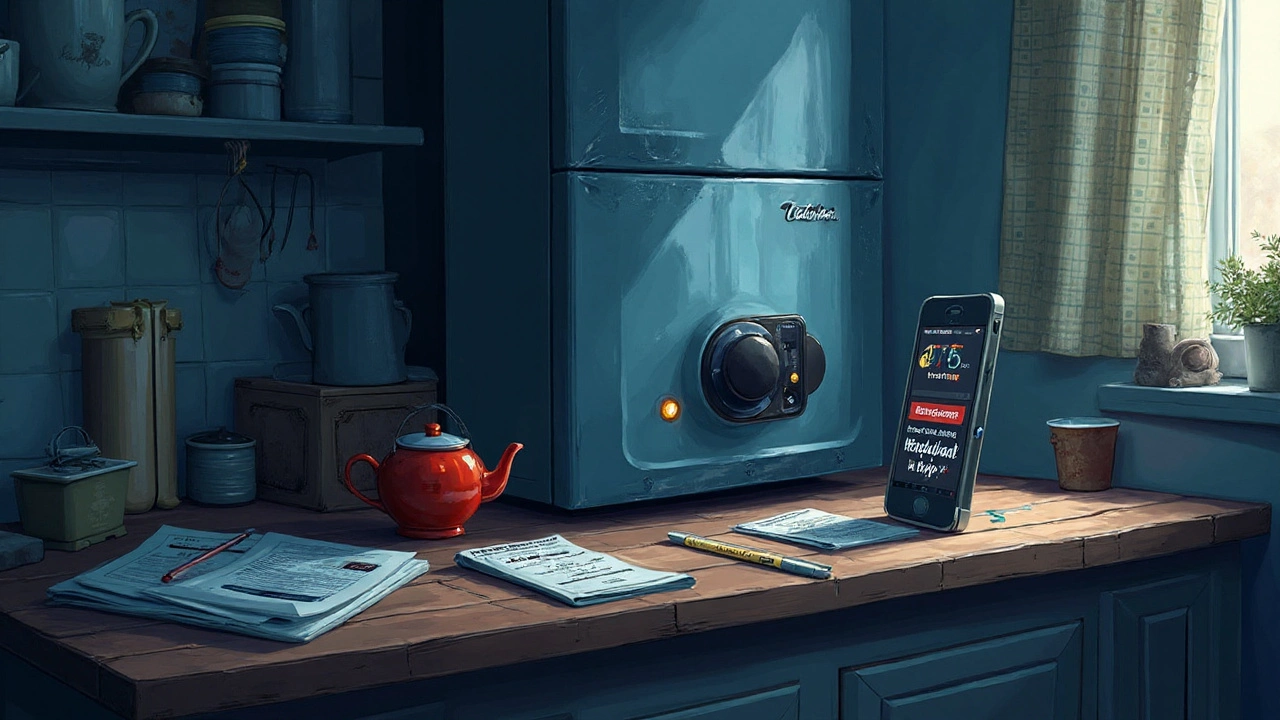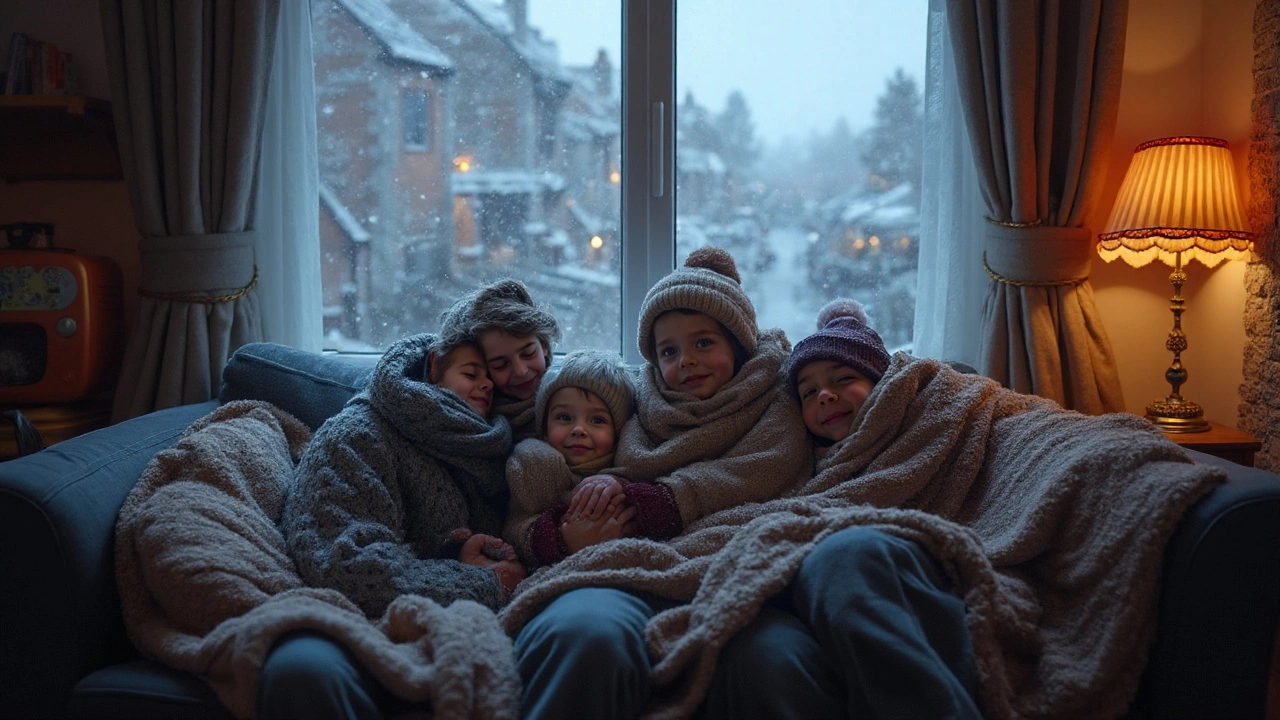Imagine waking up on a bitter January morning, stepping out of bed, and your toes hit freezing-cold floors. You rush to turn up the thermostat, but nothing happens. The boiler's dead. Panic sets in. You wonder, how long can a family really survive in a house without heating? Is it just uncomfortable, or actually dangerous? Most people think they’ll just wrap up in blankets and tough it out, but there’s a point where a broken boiler without repair becomes more than an inconvenience—it turns into a safety issue. Let’s cut through the myths, ask the questions nobody really wants to face, and figure out just how long you can, or should, be left with a broken boiler.
The Immediate Impact of a Broken Boiler
The first hours without a working boiler in the middle of winter are brutal, but most healthy people can manage. Still, discomfort jumps straight to the front of the line: icy showers, shivering kids, and frozen fingers make home life miserable. The initial response usually involves extra clothing, hot drinks, maybe even dragging out that electric fan heater from the attic. But what’s really at stake in those first 12 to 24 hours?
Here’s the blunt truth: once your home temperature drops below 16°C (61°F), things get uncomfortable. At 10°C (50°F) or lower, according to the UK’s National Health Service guidelines, risk begins to build, especially for the elderly, babies, and people with health conditions like heart disease or asthma. Your body burns more energy to stay warm, and your immune system takes a hit. Under-18s and over-65s are most at risk. There have been hospital admissions traced directly to cold homes in peak winter seasons in the UK. But for healthy adults, one or two days without a boiler is usually survivable, if unpleasant. Water pipes only tend to freeze when indoor temps sink below 4°C (39°F). If it’s mild outside, you might have days before real danger sets in—but that window closes fast in a cold snap.
Let’s talk practical issues: without central heating, you’ll burn through electricity running plug-in heaters fast, and if you rely on the boiler for hot water, expect a cold bath, too. Dishes pile up, showers become torture, and overall hygiene feels like an impossible challenge. The mental stress of enduring a freezing house shouldn’t be underestimated. Sleep and productivity fall off a cliff when you’re shivering 24/7. Add in pets or small children, and your little discomfort turns into a family emergency. There are recorded spikes in chest infections and even deaths among vulnerable groups every winter, linked to broken heating.
Hidden Dangers Lurking in a Cold House
There’s more at risk here than just losing feeling in your toes. Let’s look at the stuff nobody talks about until they’re dealing with burst pipes and insurance claim forms. Below 7°C (44°F), water can freeze inside your pipes, causing them to burst. Home insurance claims for water damage spike in winter, often because people waited just one day too long for an emergency repair. Fixing water-damaged floors costs way more than any call-out charge. And when water sits stagnant in pipes, you risk bacterial growth, meaning your first warm shower after a week can be a breeding ground for nasty bugs.
It’s not just about burst pipes—the structure of your home gets battered in extended cold. Wooden doors and floors contract, paint chips, and condensation can build up, leading to black mould. That stuff’s not just unsightly; long-term mould exposure is connected to breathing problems and allergic reactions. Mould spores love the combination of cold air and condensation. One study from the Building Research Establishment found mould problems in 21% of homes left unheated for more than three days in winter. Dehumidifiers and open windows help, but nothing replaces steady heat for keeping your home dry and safe.
On top of all this, cooking becomes a dilemma, especially if your main oven or hob relies on the same gas connection as the faulty boiler. Hot drinks might seem like a solution, but they only raise your body temperature by a fraction for a few minutes at best. If your hot water cylinder is out too, then plate after plate will need cold washing—a nightmare in winter.
The psychological toll doesn’t get much press, but it’s real. Ongoing cold can tip anyone toward irritability, poor concentration, and even depression, especially those already struggling with mental health. Kids become restless fast, adults get snappy, and relationships fray at the edges. Extended cold snaps in homes are linked to a spike in anti-anxiety and anti-depressant prescriptions each winter season, according to NHS digital health surveys from 2023 and 2024. Living in discomfort starts to feel like surviving, not thriving.

When Is It No Longer Safe to Wait?
This is where it gets serious. People ask, “Can I hold out a few days for a cheaper repair slot?” or, “Will my landlord actually get fined if they let it drag out?” Here’s the honest answer: if you have babies, elderly relatives, or anyone with a chronic illness in the house, you need to act within 24 hours. If you’re healthy and under 60, two or three days is the outside limit—after that, you hit the danger zone, especially during freezing nights. Case studies from local UK councils show that frost damage and sharp rises in respiratory infections happen in the third day of lost heating in residential homes.
If you rent, by law in the UK (the Landlord and Tenant Act 1985), landlords have 24 hours to address heating and hot water failures—counting as emergency repairs—if there is a health risk. Ignoring it isn’t just bad manners, it’s illegal in a lot of places. Since 2018, local authorities can fine landlords up to £30,000 for failing to provide urgent heating repairs. It rarely comes to that, but if you’re waiting days for your landlord to send someone, document every call and email. The law in the US is patchier, but most states call heating “essential services,” with similar 24-hour emergency requirements once you report it.
For homeowners, your window is set by three things: outside temperature, health risk, and whether you’ve got backup heating. The golden rule: if indoor temps drop below 12°C (53°F) during the day, call for a professional, not because it’s slightly uncomfortable but because pipes and people are genuinely at risk. If you live in a new-build with decent insulation, you can hold out a bit longer. Older, leaky houses are brutal: cold gets in, warmth vanishes, and pipes face higher risk. If you notice water drips, strange mechanical noises, or radiators icing up, you’re running on borrowed time.
During cold snaps, UK government advice is to check on neighbours, particularly elderly people, if their heating is down. Community centres and libraries often open as ‘warm hubs’ in repeated cold waves—one of the quiet successes of the past five years in local authority care. They’ll even provide free hot drinks and a warm place to wait while you arrange a repair. If you’ve got nowhere else to go, head to a shopping centre or ask friends for a few nights’ couch surfing. Don’t risk hypothermia for pride or to “tough it out.” Deaths in cold homes happen. Don’t join the stats.
What to Do When Your Boiler Breaks: Tips and Workarounds
So your boiler’s quit. First things first, stop panicking. Step one: check your thermostat and power supply—a tripped fuse or a simple reset can sometimes restore everything. Around 30% of service calls are for something you could fix in 30 seconds with a switch or battery!
- Reset your boiler: Most modern boilers have a reset button. Check the manual (yes, dig it out from the kitchen drawer) and follow the instructions. Resetting fixes about 1 in 10 breakdowns.
- Check gas and electricity: If you have a prepayment meter, have you run out of credit? If so, top up and try again. For everyone else, make sure other gas appliances are working, plug in a lamp to confirm there’s power.
- Inspect the pressure gauge: Most boilers work best between 1 and 2 bars pressure. If it’s dropped, top up following your manual’s instructions. Low pressure can sometimes shut a boiler down but is a simple fix.
- Bleed your radiators: Cold spots or radiators that don’t heat up might just need air bled out.
- If there’s no obvious quick fix, call a qualified engineer. Never try to open the boiler casing or fiddle inside—gas appliances aren’t a DIY job unless you’re legally certified.
Until repair arrives, layer up—thermal socks, hats indoors, even gloves help. Pile up rooms: use one small space, keep doors closed, and draft-proof wherever possible. Electric fan heaters and oil-filled radiators will do in a pinch, but watch your electricity bills. Group the family in one room overnight and use extra blankets and hot water bottles. If you’ve got a wood stove or open fire, use it (but check your carbon monoxide alarms first). Hot meals, regular movement, and warm drinks will help, but don’t count on them to completely solve the problem. If you live alone and feel you’re getting too cold, call a friend, neighbour, or local support line for advice.
If your only issue is hot water, but you still have electricity, kettles and pans can stand in for emergencies, but be extra careful carrying boiling water. It’s not elegant, but it works for quick baths and dishwashing. If you suspect a gas leak, don’t mess around—evacuate the house and ring emergency services. Remember, a boiler that keeps cutting out or smells odd isn’t just an inconvenience—it’s a safety risk.
Finally, every homeowner should have boiler cover or home insurance with emergency repairs. The cost of a monthly policy often runs less than fixing one frozen pipe. Never skip an annual boiler service—engineers spot potential breakdowns and worn parts before they hit breaking point. Many policies offer next-day or even same-day repair for urgent cases—a real lifesaver when the mercury plunges. If you rent, know your rights: keep emergency contact numbers handy, and insist on documented, prompt action from your landlord.
Nobody plans for boiler breakdowns, but every winter brings a wave of homes left in the cold. The key is knowing your limits and acting early. When the heating dies, remember: cold creeps fast, damage follows, and safety’s always more important than saving a few quid or waiting just one more day.

